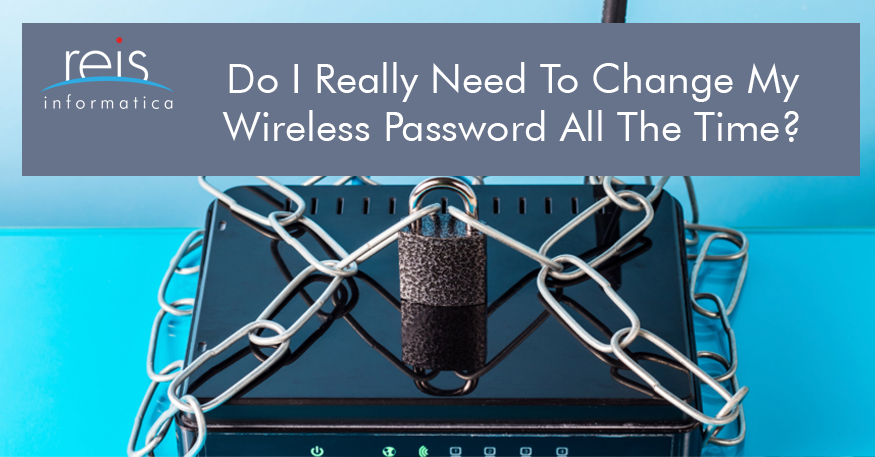In today’s world, almost anything can be, and is, connected to WiFi. Computers, cellphones, lights, speakers, TVs, cameras, and even fridges. It makes it easy to manage them remotely, and get alerted instantly if anything goes wrong.
It’s actually pretty useful.
The issue is that they are all connected to a single “source”, our wireless router. Meaning that if someone gets access to the source, they get access to all connected devices, to some degree or another.

Without getting too technical regarding what they can or can’t do if they were to access, I think a better strategy would be making sure they never do, won’t you agree?
Several things might come to mind when thinking about how to make our Wi-Fi connection more secure. The most common being, of course, its password.
Could changing your wireless password every week, or every month, be the best way to secure your network and keep hackers guessing? We don’t think so.
Let me explain why.
You Can’t Protect What Doesn’t Exist
The only reason a secure password would need to be changed is if it has been compromised. If your password hasn’t been stolen, then changing it adds no security whatsoever. No one had it in the first place anyways. Makes sense, right?
So, what is more effective than changing it all the time?
We thought you’d ask.
The best thing you can do is having a really, and we mean really secure password.
This means 5 things:
- If your router comes pre-configured with a default password, change it immediately.
- Don’t use common passwords: the most common passwords used in 2020 are all laughably insecure.
- Make your passwords as long as possible. The best practice is to use at least 15 characters.
- Use a mix of characters. This means throwing in both lower and upper case letters, numbers, and special characters.
- Avoid sequential passwords or keyboard paths. Do not use ascending or descending numbers, or letters that are next to each other on your keyboard, like qwerty.
By applying all of the above, you should end up with something like this:
EuR0pe$368(j0uRn3Y
You might think it’s impossible to remember. But if you dissect it, it’s just two simple words and a date with a couple of symbols. The key is to use words and numbers that are easy to remember for you, laid out in a hard-to-guess manner.
Above and Beyond
If you want to go a step further and protect your wireless connection even more, here are some other things you can do:
- Use a password (duh!)
Never leave your network open (no password). Yes, even if your house or office is far away and remote - Restrict physical access to your router
No matter how complex your password, direct access to your router will make it useless. Make sure you keep it in a secure, out-of-sight place. - Disable WPS
This is a feature most routers have, where you press a physical button on the device itself and then connect to it. The router will acknowledge you are connecting something and send its password automatically so it can be remembered, basically bypassing the need to enter it. Not good. - Hide your SSID
This means hiding the network completely from public view. When connecting, you will need to enter both the wireless connection name and its password. This adds a powerful extra layer of security. Even if someone were to guess your password, if they don’t have your SSID, they won’t be able to connect. - MAC Filtering
Every device you use to connect to a wireless network has a unique MAC address. By telling your router the exact addresses of your devices, it will block any connections not coming from one of them.
The New Age
Old school best practices recommended changing passwords every 3 months. But the constant modifications have proved to be more of a burden than a blessing.
Changing it too frequently makes people forget them more easily as it starts getting hard to keep track. Or even worse, you might need to write them down physically which is an added unnecessary risk as someone might find it.
Complexity over frequency will keep your wireless connection extra secure, guaranteed.



.png?width=1080&name=GOOGLE%20REVIEW%20(1).png)